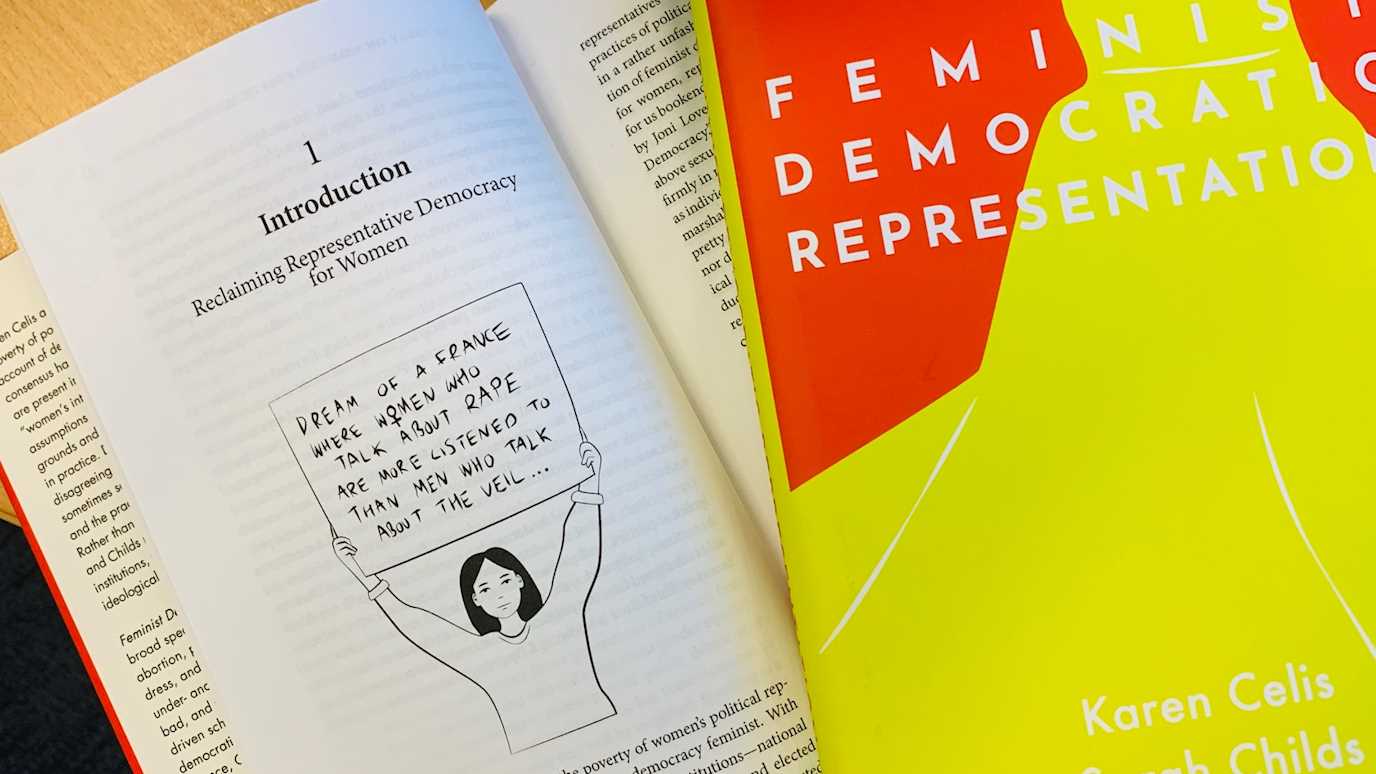A new book on women in politics sets out to redress women's poverty in political representation with a new feminist account of democratic representation.

The book, Feminist Democratic Representation, written by Professor Sarah Childs, from the Department of Politics, International Relations and Philosophy at Royal Holloway, University of London and Professor Karen Celis from the Department of Political Science at the Vrije University Brussel, offers an alternative to claims that women would be in receipt of good representation if only there were more women in our parliaments.
It also takes issue with the contention that differences among women, especially where women disagree about what is in ‘their interest’, fatally undermine both the principle and the practice of women's group representation in politics.
The book looks instead at how to re-design representative institutions, taking women's differences—both ideological and intersectional—as its starting point.
Feminist Democratic Representation considers a broad spectrum of contemporary problematics—abortion, prostitution/sex work, Muslim women's dress - to discuss women's under- and mis-representation, and the "good, bad and the ugly" representative.
Professor Sarah Childs from Royal Holloway, said: “Political institutions are sites of contestation over what constitutes women’s issues and interests, and where the diversity of these and other political interests are discussed, deliberated, and decided upon.
“By bringing about political representation as it should be, would be to demand a significant change in our democratic politics and of its political institutions, political representatives, political parties, and parliaments.
“The future is one we call Feminist Democratic Representation.
“Our elected representatives would be institutionally and systemically required to represent women. This role is designed into the political institutions of our representative democracy.”
As problem-driven scholars firmly grounded in feminist and democratic empirical and theoretical political science, Professor Childs and Professor Celis imagine representation as it should be: what good representation for women in all their diversity could look like.
To realise this ideal in today's established representative democracies, they present a second-generation feminist design for parliaments and legislatures, underpinned by a re-thinking of feminist and democratic principles.
As Professor Celis says, elected representatives, men and women, need to listen to the voices of diverse women and when they later deliberate and decide they will do so with new knowledge about what women’s interests are and knowing that these women will hold the to account for the decisions that they take. In sum, elected representatives will know more and care more about representing diverse women well.
The book can be ordered from Oxford University Press with promotion code ASFLYQ6 to save 30%.
























